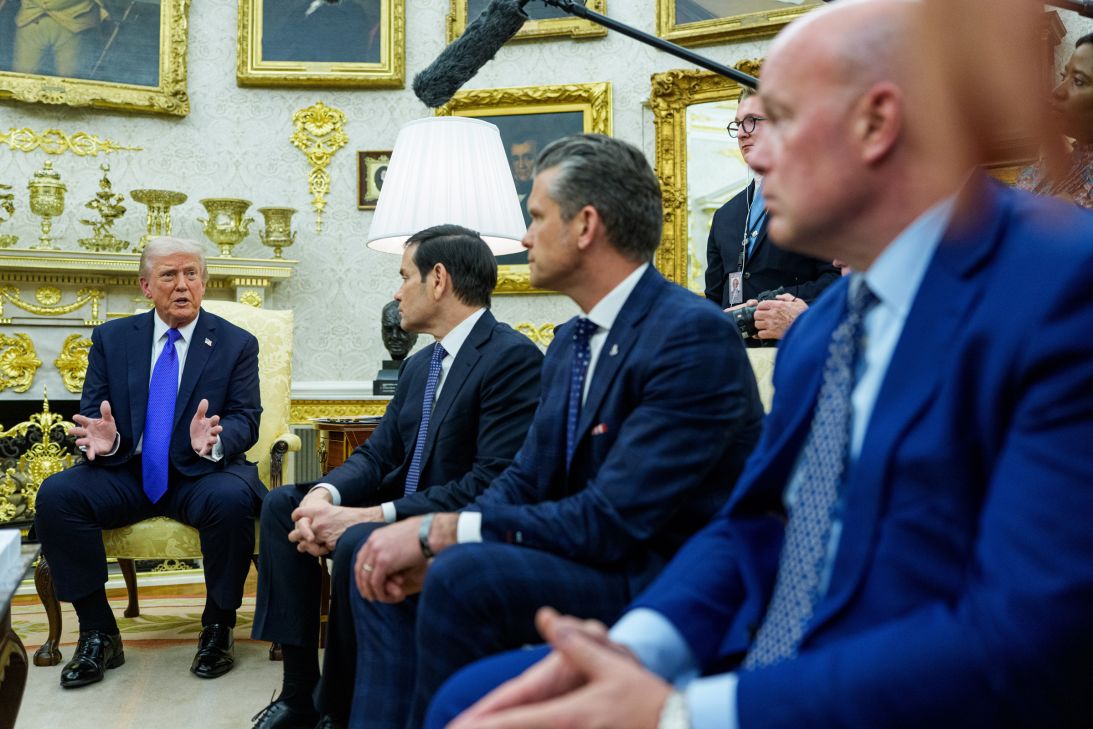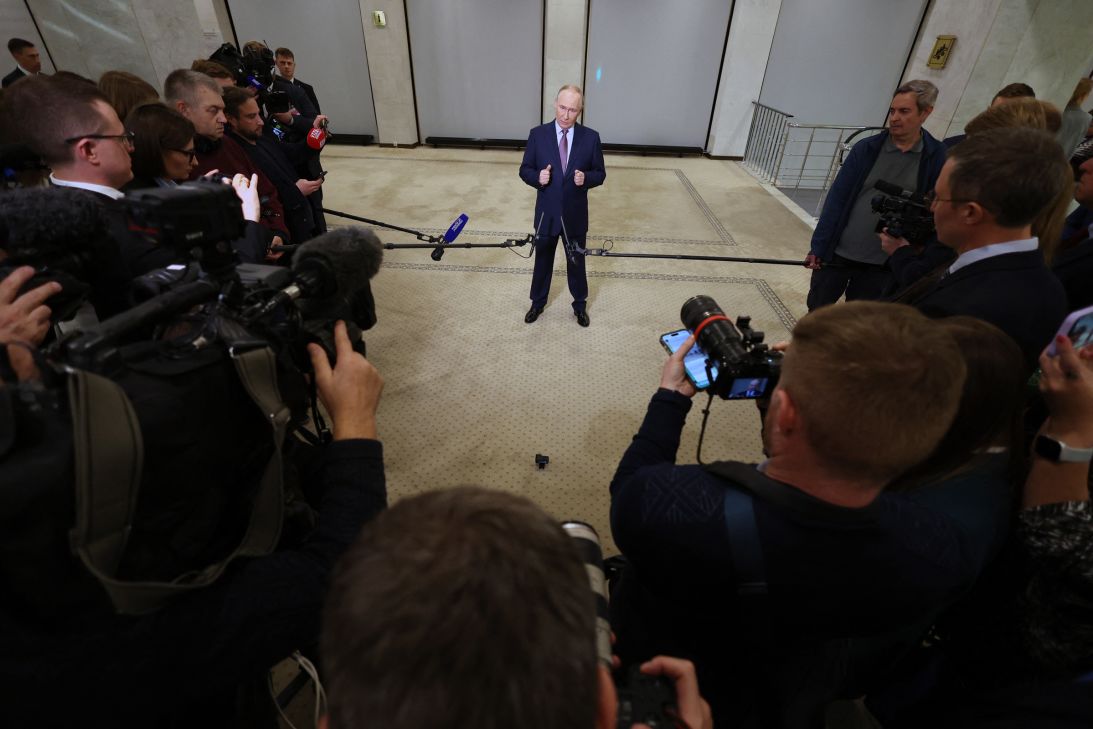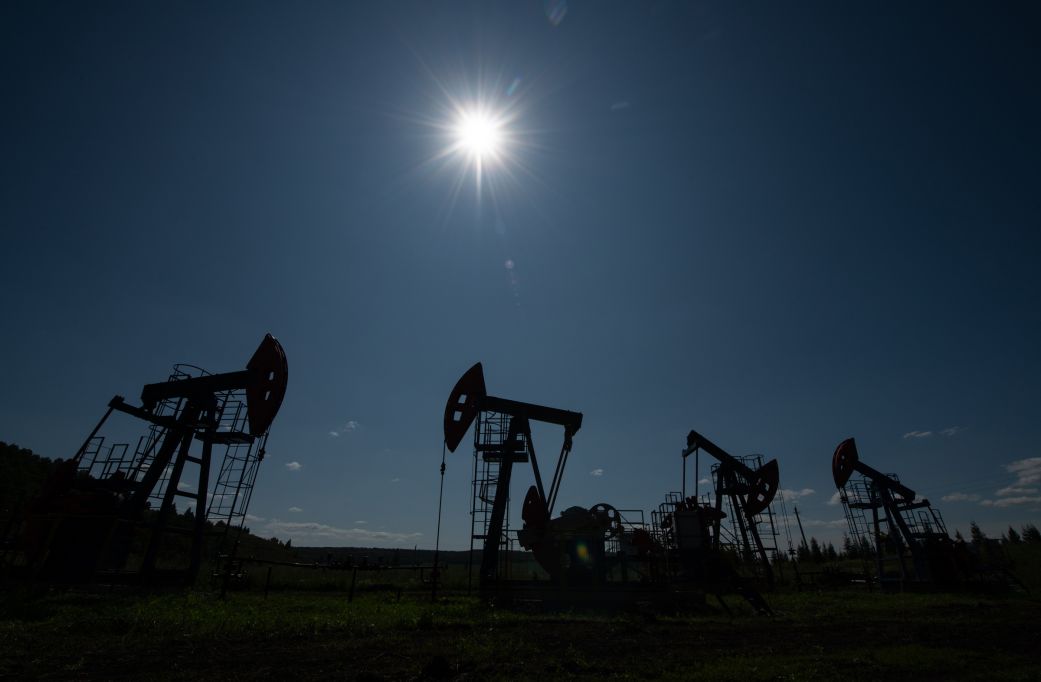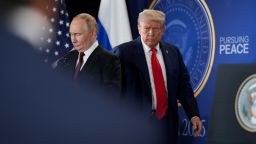After nine months of attempting to coax Russia into concessions using only incentives – whether by holding talks on repairing diplomatic relations or hosting a major bilateral summit on US soil – the Trump administration in an unexpected reversal announced “massive sanctions” Wednesday on Moscow’s two biggest oil producers.
Just one week earlier, President Donald Trump had backed away from supplying long-range Tomahawk missiles to Ukraine after a phone call with Russian President Vladimir Putin, who secured an invitation to a second bilateral summit, this time in Budapest.
Secretary of State Marco Rubio, among the more hawkish members of Trump’s Cabinet regarding Ukraine, was tasked with preparing that summit. But Russia’s uncompromising insistence on addressing what it sees as the “root causes” of the conflict finally hit home at the White House. Trump didn’t want to “waste time” at another summit, he said Wednesday, though he left the door open, suggesting that “we’ll do it in the future.”
Will this dent Russia’s war machine?
Trump’s frustration with Russia had clearly been growing in recent months, as it became clear that his much-touted Alaska summit had failed to stop escalating violence in Ukraine. He even shifted his position on Ukrainian strikes deep inside Russia, increasing intelligence sharing to help Kyiv target military and energy facilities, sources told CNN last week.
And yet after multiple threats from Trump to ramp up sanctions against Moscow failed to materialize, and with the call between the two presidents last week suggesting the US leader was still susceptible to Russian persuasion, Wednesday’s move to sanction the Russian oil giants and their subsidiaries blindsided experts.
“It was actually surprising simply because there was always a discrepancy between Trump’s rhetoric and actions,” said Maria Shagina, a senior fellow at the London-based International Institute for Strategic Studies (IISS), in written comments to CNN.
“It seems that today Russia has overplayed its hand, and Trump’s patience is wearing thin,” she wrote.
How painful this will be for Russia is something that experts and energy markets are still trying to decipher.
What exactly are the sanctions?
This is the first time Trump has imposed direct sanctions on Russia since he returned to office in January, though in August, his administration declared punishing secondary tariffs on India for its purchases of Russian oil.
The sanctions are typical in the sense that the companies listed – Rosneft and Lukoil, along with dozens of subsidiaries – will have their assets frozen in the United States, and US entities will be banned from doing business with them. Yet most experts agree that targeting Rosneft and Lukoil represents a significant change. Together, the two companies account for about half of Russian oil exports, according to RBC Capital Markets.
In January, the Biden administration went after Russia’s third- and fourth-largest oil companies, Gazpromneft and Surgutneftegaz, in its final package of sanctions. But it left the biggest ones alone, experts say, over fears of triggering global supply disruptions that would lead to higher oil prices.
In a note Wednesday night, Helima Croft, head of Commodities Strategy at RBC, called Trump’s sanctions “the most material move to date by the United States to shutter the Russian war ATM.”

What else is the West doing?
Another first for Trump’s second term here is the appearance (whether by accident or design) of coordinating sanctions with NATO allies, which had been normal practice under the Biden administration.
A week earlier, on October 15, the United Kingdom expanded its sanctions to include Rosneft and Lukoil, and on Wednesday, the European Union also unanimously approved its 19th package of sanctions. That package includes a full transaction ban on Rosneft. And while it stops short of targeting Lukoil, it goes after Litasco, a trading unit of Lukoil in the United Arab Emirates that the European Union describes as “Lukoil’s prominent shadow fleet enabler.”
“This is a clear signal from both sides of the Atlantic that we will keep up collective pressure on the aggressor,” wrote European Commission President Ursula von der Leyen, who also held a call Wednesday with the US treasury secretary.
How big a blow is this to Russia?
The impact that the new US sanctions could have on the Russian economy is up for debate. Shagina, the IISS senior fellow, points out that the move comes at a “vulnerable point” for Moscow, which faces the double whammy of Western sanctions and what she calls Ukrainian “physical sanctions” with its ongoing drone attacks on Russian energy infrastructure. Those attacks have already contributed to a 20% drop in Russia’s energy revenues so far this year, though Moscow is planning to make up some of the shortfall through tax increases.
“It’s a strong signal, but it’s still more of a signal than a huge blow to the Russian economy,” said Janis Kluge of the German Institute for International and Security Affairs, a think tank in Berlin. He points out there has been little to no effect so far on the ruble and that the stocks of Lukoil and Rosneft have fallen but “not cratered.”
Experts largely expect that while there may be temporary supply disruptions, Russia will find ways to keep its oil – including that produced by Lukoil and Rosneft – flowing onto global markets.
“Russia has set up a total off-grid infrastructure to be able to keep on supplying its oil to its trading partners, especially in India, especially in China,” said Ajay Parmar, director of oil markets and energy transition at Independent Commodity Intelligence Services (ICIS), a London-based commodities data and analytics firm. He said he believes that the Russians will simply make “adjustments” and create new workarounds.
The lasting impact will depend on the US appetite to tackle those workarounds as they arise, said Richard Bronze, head of geopolitical analysis at Energy Aspects, a data and intelligence firm in London
“It’s not clear yet that the Trump administration, even if it doesn’t get what it wants from Putin, is going to have the resolve and the desire to go down that road,” he told CNN.

The US has imposed sanctions on Russia’s two largest oil companies in a bid to push Moscow toward an immediate ceasefire in Ukraine. CNN's Clare Sebastian weighs in how much impact the move could have.

Will this dent the global economy?
The big question for both Russia and the global economy, experts say, is how India will respond to these new US sanctions. Citing industry sources, Reuters reported Thursday that Reliance Industries, India’s biggest importer of Russian crude oil, is planning to cut back or stop imports completely, going even further than the letter of the sanctions as US pressure mounts on New Delhi to stop importing Russian oil as a condition for tariff reduction.
For Russia, this would be critical. India imports 1.5 million to 2 million barrels of Russian crude per day, Parmar estimates, accounting for about 30-40% of all Russian exports. If those imports were to suddenly stop, “that would leave only China as the big buyer of Russian oil,” he told CNN. “I think it’s unlikely that China would buy all of that lost oil, so some of it may be taken off the market, and that is really the bigger driver for higher oil prices right now,” he added.
Meanwhile multiple trade sources told Reuters Thursday that Chinese state oil majors have suspended purchases of seaborne Russian oil in the wake of the US sanctions – a move that would further strain Moscow’s oil revenues.
Chinese national oil companies PetroChina, Sinopec, CNOOC and Zhenhua Oil will stop dealing in seaborne Russian oil, at least in the short-term, the sources told the agency.
US crude oil prices are down almost 25% from their peak in January, a drop that gave Trump “more room now to impose sanctions,” Kluge pointed out. But the challenge will be avoiding sustained price rises that could hand an unexpected windfall to Moscow and partially offset the impact of sanctions, he said. That would likely mean Trump putting further pressure on OPEC+ to boost oil production, said Parmar. If Trump is successful, price rises could be contained.

Will it bring Putin back to the table?
On their own, these sanctions are nowhere near enough to spark a course correction in Moscow, experts agree. And yet they could signal more difficult times ahead for the Kremlin.
The response from Putin, coming almost 24 hours after the US sanctions announcement, was somewhat contradictory.
The sanctions “will not significantly affect our economic well-being,” he told a group of Russian reporters. “No self-respecting country and no self-respecting people ever make decisions under pressure,” he added.
The ultimate economic impact of these new sanctions on Russia is yet to be determined but the political shift is alarming for Moscow, said Kluge, of the German think tank.
“Yes, it could be different tomorrow again,” he said referring to Trump’s approach to Russia.
But “it’s a signal that the previous mode of dealing with Russia in which there was always another chance … another extension to the ultimatum … has actually ended.”


